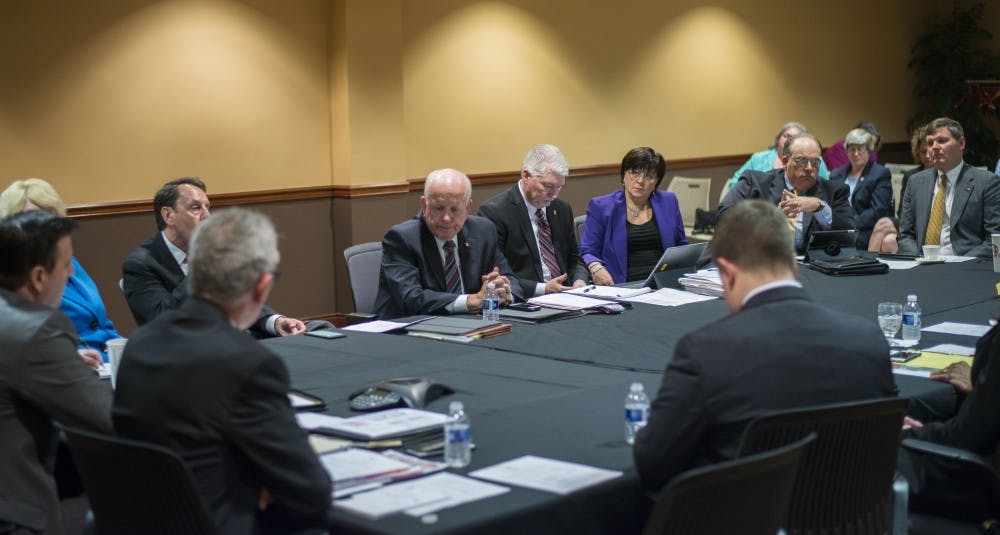Proposed Selection Methods in Senate Resolution
- Three members representing taxpayers, and/or the Ball family, as appointed by the governor
- Three members representing alumni and as appointed by the Alumni Association
- One student representing the student body as appointed by the Student Government Association
- One person representing the external community as appointed by the city government of Muncie
- One emeritus faculty [retired] representing the University's learning, research, and service missions as appointed by the University Senate.
University Senate Resolution draft provided by Bruce Frankel
The new Board of Trustees members should have academic experience and focus on transparency, members of Ball State's faculty said.
As previously reported, two BSU alumni have applied for the open positions. They are Muncie firefighter Jason Chafin and Kit Crane, Henry County Circuit Court 2 judge.
The spots opened up after two Board of Trustees members, Marianne Glick and Frank Hancock, sent in resignation letters on December 17, 2015, as previously reported.
Glick said she wanted to serve on the Ivy Tech Community College Board in her resignation letter, while Hancock wrote that fresh faces are needed on the board.
Read three faculty members' thoughts on what qualities the ideal new Board of Trustees members should have.
Timothy Berg, assistant professor of Honors humanities
Berg said potential candidates should have an interest in transparency, as the board has been closed about its decision making process.
“They need to be transparent; they need to be responsive to the needs of the students, faculty and staff,” Berg said. “There is a standoffish quality in the trustees that they are separate from the university, and I think that has to change.”
Berg said he thinks they should have some experience in academic life and they should be engaged in university affairs beyond their role as a trustee.
“My concern is the university has been run too much like a business, and there needs to be a better understanding of how the academic world works,” Berg said.
Berg said the recent controversy over Former President Paul W. Ferguson’s resignation has created distrust between faculty and the board.
One of the ways the board can improve trust is by having open round tables and events on campus to engage more people, Berg said. Ferguson held president’s round tables, where he would listen and discuss issues.
“I went to one of those [round tables], and Ferguson listened and asked relevant pertinent questions and seemed to really care about what we were saying,” Berg said. “He was actively listening, and I think they [the board] could replicate that.”
Bruce Frankel, University Senate senator and professor of urban planning
Frankel drafted a resolution earlier this semester to revise the methods in which the members of the board are appointed after transparency concerns were brought up after Ferguson’s resignation.
“I believe how they are appointed and who they are determines the quality of the board’s governance,” Frankel said.
He said they should have diversity in terms of gender, age and race.
Paul Tuke, instructor of English as a Second Language
Paul Tuke, an instructor of English as a Second Language, said the board should have more members with experience in academia and less in business.
"None of the voting members of the board have a Ph.D, and, to me, I think that that can really diminish the concerns of academic integrity," Tuke said.
Tuke said having more local representation on the board would be beneficial, as the majority of the current trustees do not live in Muncie.





